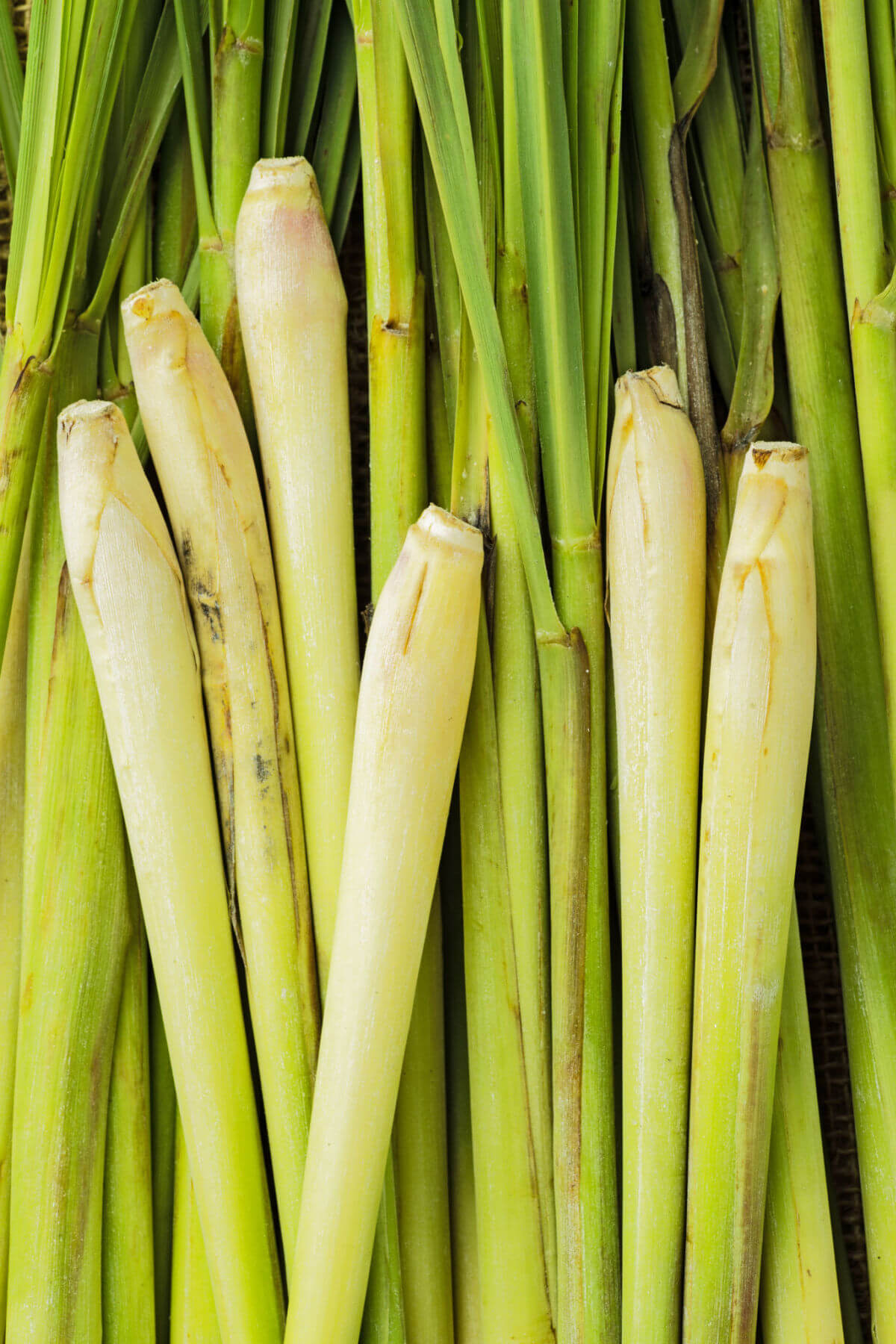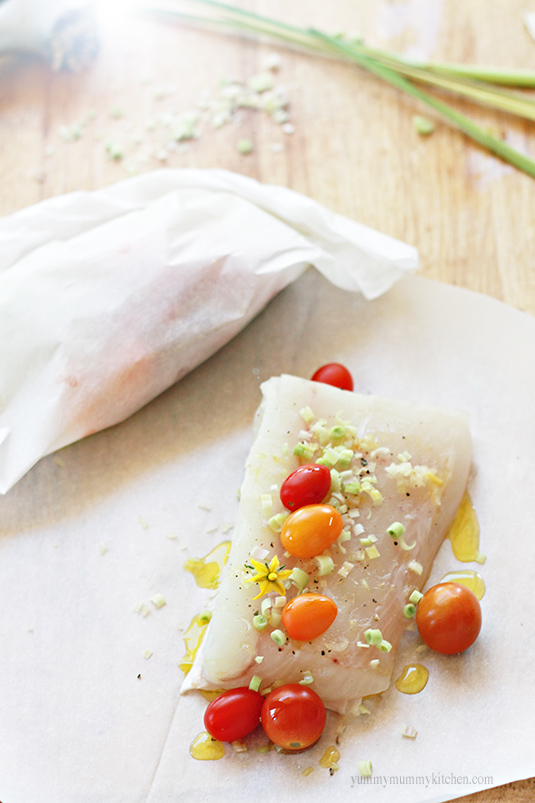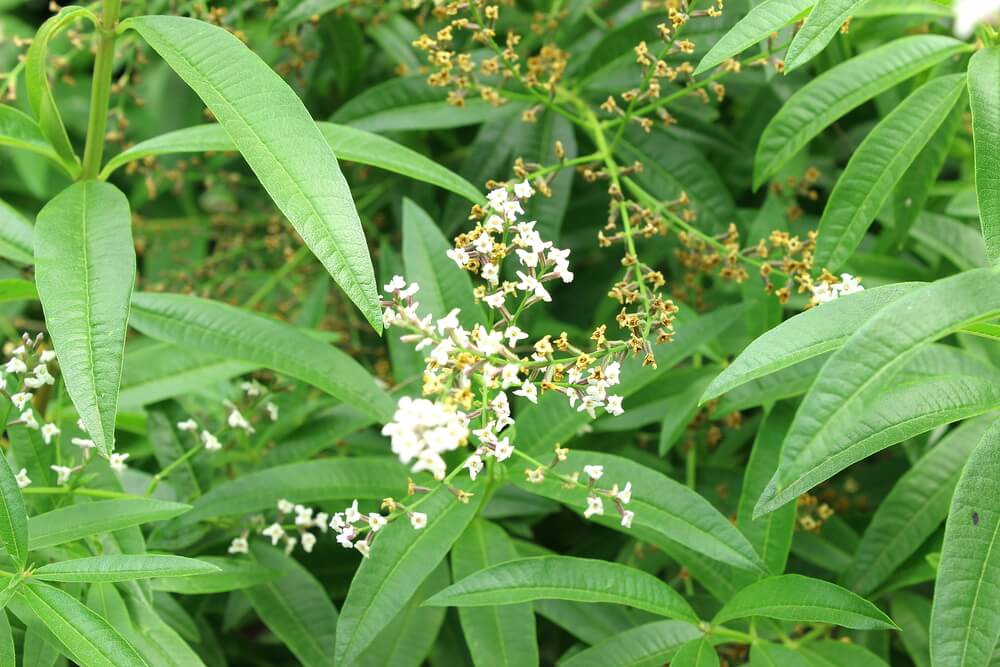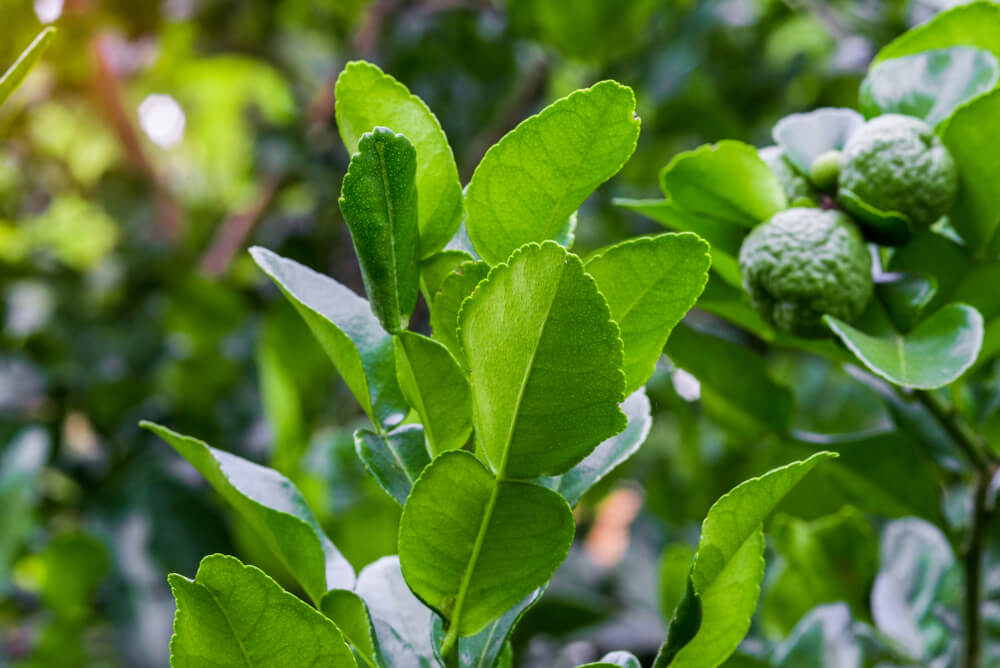Lemongrass Substitute
Are you looking for the best substitutes for lemongrass? Here are 4 alternatives for when you don’t have any lemongrass on hand.

A culinary staple in Southeast Asia, lemongrass adds its characteristic herbaceous lemony zing to a wide range of dishes and even teas. Fresh lemongrass, in particular, will add a depth of complex flavors to meals. Countries like Thailand, Indonesia, and India feature lemongrass in many of their most popular dishes. Today, many cooks prize the distinctive taste of this herb, but unfortunately, it’s not always easy to come by. In fact, even dried lemongrass (which has a more woodsy taste than fresh) isn’t typically available in most mainstream supermarkets in the West.
Luckily, if you can’t get lemongrass for a special dish you’re planning to prepare, there are some good lemongrass substitutes that will do an admirable job standing in for the Southeastern herb. Lemongrass is well known for its lemony flavor that boasts hints of ginger. By adding a touch of ginger to your dishes and supplying a known lemongrass alternative with a lemony fragrance and taste, you can replicate lemongrass’s contribution to dishes fairly well. Here, we’ll explore some of the best lemongrass substitutes that you can use if lemongrass isn’t available at your local store.
WHAT IS LEMONGRASS
Lemongrass is a perennial herb. It is a type of grass with long leaves resembling stalks or seagrass.
This aromatic tropical grass is commonly used in Asian cuisine, and it can be found fresh, dried, or ground into a powder. You can also find fresh lemongrass paste, which makes cooking with it very easy.
WHAT DOES LEMONGRASS TASTE LIKE?
Lemongrass has a distinct herbal citrusy flavor with hints of ginger. This herb is subtly sweet, sour, woodsy, and earthy, and it adds complexity to dishes.
HOW TO COOK WITH LEMONGRASS 
Lemongrass adds a distinct flavor to Asian cuisines, especially Vietnamese, Thai, Indonesian, and Malaysian.
It is a great addition to stir-fries, soups, sauces, and salad dressings. It’s a key component of the yellow curry paste we use in this Easy Yellow Curry. Minced, we added it to Halibut en Papillote.
To use a fresh lemongrass stalk, cut off the bottom 1-inch of root and discard. Only use the bottom 3-4 inches and discard the top. Next, peel off the tough outer layers. Smash the tender inner stalk with a meat tenderizer or rolling pin to release some of the essential oils. You can then add this piece right into simmering pots of curry or soup as you would a bay leaf. Or, you can mince the tender inner piece of the stalk and add it to stir-fries, sauces, and dressings.
Lemongrass pairs well with these flavors:
- basil
- chicken
- chile peppers
- chives
- cilantro
- cinnamon
- coconut
- coriander
- crab
- cream
- curries
- fish
- fruits
- garlic
- ginger
- lime
- lobster
- mint
- noodles
- rice
- onions
- peanuts
- sage
- shallots
- shellfish
- shrimp
BEST LEMONGRASS SUBSTITUTE FOR COOKING
1. Lemongrass Paste
If you can’t find lemongrass stalks in your grocery store, check for lemongrass paste before moving on to another substitute.
To use lemongrass paste, use 1 tablespoon paste to replace 1 tablespoon minced lemongrass, which is equal to about 1 stalk.
2. Lemon
Perhaps the most obvious of all lemongrass substitutes, lemon is also one of the easiest of the listed alternatives here to procure. Plus, lemon is wonderfully dynamic. Its meat and juice can be used in cooking as well as the zest from its peel. Some cooks only require a splash of lemon juice to brighten dishes and drinks. In fact, depending on which part of the lemon you use (and you can use them all in a single dish if you choose), you can expect slightly different flavors.
However, if you’re hoping to replicate the flavor of lemongrass closely, you’ll want to stick to lemon’s natural oils contained in its peels. Lemon zest is a terrific lemongrass alternative because it won’t overpower your dish the way lemon juice might. If your recipe calls for one stalk of lemongrass, you can use the zest from one medium-sized lemon to achieve similar flavoring.
As a side note, some cooks opt to use preserved lemon as a decent lemongrass alternative. Although it won’t produce as similar a taste as lemon, preserved lemon will lend a delicious depth of flavor to your meal. Popular in North Africa, preserved lemon is simply lemons that have been preserved in salt. Their flavor is intense, bright, and zestful, but rather more mellow than fresh lemon.
3. Lemon Verbena
Native to South America, lemon verbena is popular in its own right in culinary traditions. In fact, some people prefer lemon verbena over lemongrass because its citrus-like leaves are less bitter than lemongrass. Moreover, lemon verbena is much more robust than lemongrass, so a little bit goes a long way.
Lemongrass is more subtle than lemon verbena so if you want to replicate it, you’ll need to limit your lemon verbena carefully or it could overpower your dish. Typically, if you were going to add a stalk of lemongrass to a meal, you would only add two leaves of lemon verbena as a substitute. If the result isn’t quite lemony enough for your palette, add some lemon zest to your dish to achieve your ideal flavor. Be sure that when your meal is complete, you remove the lemon verbena leaves before serving.
4. Lemon Balm
Lemon balm is a charming herb that many cooks enjoy growing right in a kitchen window or in their herb garden. Sometimes known as “balm mint,” lemon balm is part of the mint family of herbs. Many people use this herb in teas, soups, and salads. Along with its subtle lemony flavor, it brings its telltale minty taste to dishes and teas too. Not surprisingly, it offers dishes an uplifting and refreshing quality that makes it popular with cooks worldwide.
When featuring lemon balm as a substitute for lemongrass, you should plan to use three of its leaves for every stalk of lemongrass you had planned to use. Ideally, you’ll want to use fresh leaves for your dishes. As a delicate herb, lemon balm doesn’t pack the same citrusy punch as some other lemongrass alternatives, but you can render its presence more powerful but chopping the leaves before adding them to your dishes. You will not need to remove the leaves or chopped leaves from your dish before serving it.
5. Kaffir Lime Leaves
Also known as Thai limes, Kaffir lime leaves are also popularly used in Southeastern cuisines, especially in dishes from Thailand, Vietnam, and Cambodia. The leaves of the Kaffir lime tree are hourglass in shape and feature a gentle citrus flavor that will brighten teas, curries, and soups. Like lemongrass, Kaffir lime leaves may not be easy to find at your local supermarket, but you may be able to find dried or frozen leaves that make excellent lemongrass alternatives for your dishes.
Kaffir lime leaves offer the same subtle flavor as lemongrass, so you can replicate the flavor by using one lime leaf for every single lemongrass stalk you had planned to use. Unfortunately, regular lime leaves do not produce the same flavor and, so, aren’t a viable lemongrass alternative. In this, it has to be Kaffir lime leaves. Once you’ve completed your cooking, you can remove the leaves before serving your meal. If you find that the flavor is too subtle, add some of the lime’s juice and zest to achieve the perfect flavor profile.
Each of these ingredients can make a mouthwatering alternative to lemongrass. In some dishes, they may even prove preferable. These lemongrass substitutes have unique properties of their own that will help you add distinctive flavor profiles to your dishes. With their lemony brightness, they promise to do the job of lemongrass while adding some unique characteristics all their own to your meals
6. Ginger
Many people feel that lemongrass has hints of ginger. Ginger is an intense, earthy, spicy flavor, and a little goes a long way. Like lemongrass, ginger works well in Asian dishes like stir-fries and curries.
7. Herbs
Cilantro (coriander), mint, and arugula are all good options to replace the herbal notes in lemongrass.
THE BEST LEMONGRASS SUBSTITUTE
While any of the above lemongrass substitutes will work well in a pinch, the best alternative comes from a combination of them. For an easy-to-find alternative, we recommend trying a combination of lemon zest, a little freshly grated ginger, and cilantro.
















I like LEMONGRASS. My mom often cooks the meal with it for me, especially when I am tired or sick. Thanks
Lemongrass is an indispensable plant in your kitchen.